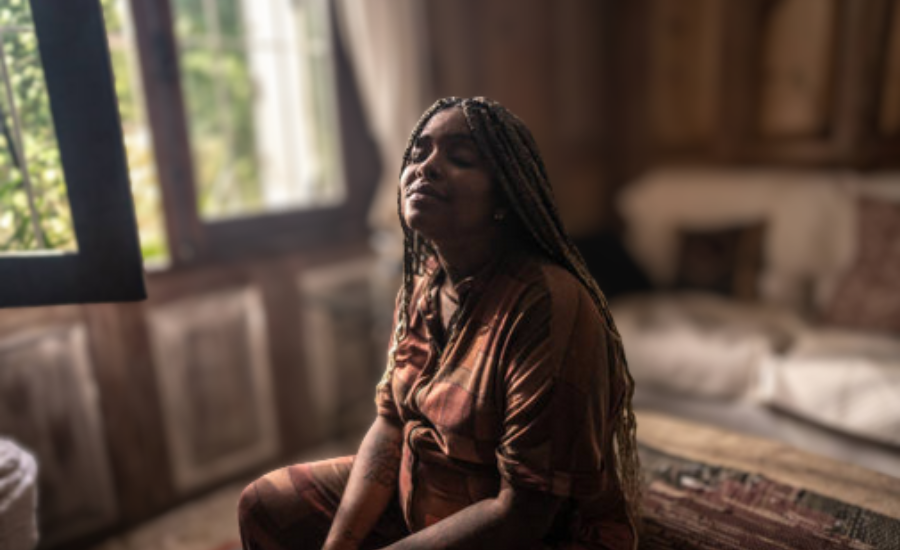What Are the Real Numbers? Tracking Christian Deaths in Nigeria’s Violence
Written By Paul Gallagher // EEW Magazine Online
Women in Jos, Nigeria, mourn as they march against a recent bout of sectarian violence between Muslims and Christians. (Photo by U.S. Commission on International Religious Freedom)
Key Points:
U.S. Senator Ted Cruz claims over 50,000 Christians have been killed in Nigeria since 2009, but Nigerian officials reject those figures and deny systematic targeting.
Independent watchdogs confirm Nigeria is among the world’s deadliest places for Christians, though estimates of deaths and motives behind attacks vary widely due to inconsistent data, overlapping conflicts, and underreporting.
Local survivors and rights groups describe ongoing massacres and impunity, while U.S. lawmakers push for sanctions and Nigeria’s government warns against foreign interference and religious polarization.
The Christian faithful observe Ash Wednesday, the first day of Lent, at St. Leo Catholic Church in Ikeja, Lagos, Nigeria, on March 5, 2025. (Photo by Adekunle Ajayi/Getty)
Reports that tens of thousands of Christians have been killed in Nigeria over the past decade have become a flashpoint in international debate. U.S. Sen. Ted Cruz claims more than 50,000 Christians have been massacred since 2009 and has proposed sanctions on Nigerian officials.
Nigeria’s government rejects that figure as false and misleading, while independent observers confirm high levels of violence against Christians. But arriving at a definitive death toll and identifying intent remains fraught with complexity.
Cruz, as chair of the Senate Subcommittee on Africa and Global Health Policy, told Fox News Digital that “over 50,000 Christians in Nigeria have been massacred, and over 20,000 churches and Christian schools have been destroyed,” asserting federal and state complicity. The senator has introduced a Nigeria Religious Freedom Accountability Act to sanction officials deemed responsible.
In contrast, Nigeria's Ministry of Information labeled his claims “absolutely false,” rejecting conclusions of targeted persecution and disputing the numbers. A presidential spokesperson has pushed back, insisting Nigeria maintains religious harmony.
Mohammed Idris Malagi, Minister of Information and National Orientation of Nigeria (Credit: AP)
While Cruz’s cumulative figures are higher than many estimates, observers agree: Nigeria is among the most dangerous places to be a Christian. Open Doors reports that in its most recent tracking year, 3,100 Christians were killed in Nigeria—making up about 69% of the global total of 4,476 faith-motivated Christian deaths.
The Observatory for Religious Freedom in Africa (ORFA), analyzing data from Oct. 2019 to Sept. 2023, found 55,910 total deaths (combatants and civilians), including 30,880 civilians. ORFA’s breakdown suggests Christian victims exceed Muslim victims in that period. Intersociety, a Nigeria-based rights group, reports that in the first 220 days of 2025 alone, 7,087 Christians were killed—implying an intensification.
A June 2025 massacre in Yelwata (Benue state) is estimated to have killed 100–200 Christian villagers, a mass event widely covered in the press. In April 2025, when gunmen killed at least 51 people in Plateau State, residents and Amnesty International tied the attack to anti-Christian targeting. Recent attacks in Benue State left 42 killed in weekend raids, attributed to suspected herders targeting central communities.
In one of Nigeria’s deadliest, 100 people were killed in a June 2025 massacre; bodies were charred, and entire communities displaced.
U.S. Senator Ted Cruz (R-TX) has introduced legislation aimed at sanctioning Nigerian officials over alleged widespread violence against Christians and other religious minorities. (Credit: Reuters)
In rural zones where herders—often of Fulani background—clash with farmers, communities argue that the violence is not random. Yet experts caution: some clashes are land and resource conflicts that can intersect with religious identity, making motive attribution murky. According to a BBC report, “Disagreements over the use of essential resources such as farmland, grazing areas and water between herders and local farmers are said to be the major source of the fighting.”
The broad disparities in totals and causal claims stem largely from methodology. Some datasets, like Open Doors, count only faith-motivated attacks on Christians. Others, like ORFA, tally all fatalities in conflict zones then segment by religion when possible. Many incidents overlap religious, ethnic, and resource motives, especially in Nigeria’s Middle Belt, making it hard to assign each killing to “religious persecution.”
President Bola Tinubu visits Benue State to offer condolences to families affected by the recent violent attacks in Yelwata community. (Credit: Nigeria Police Force)
Amnesty International reports that survivors in villages like Yelwata, Benue, and Plateau describe a relentless cycle of fear and loss. Many recount fleeing in the dead of night, leaving behind homes and fields they know they may never reclaim. The sense of abandonment runs deep. Clergy and local NGOs say that, even when arrests are made, prosecutions rarely follow.
For many victims, justice feels not just delayed but denied. Over time, the repeated shocks have bred a quiet resignation. Analysts note that in some communities, the act of reporting violence is seen as futile—a ritual that brings little hope of protection or redress. The wounds of violence, they say, are compounded by the steady erosion of trust.
In northeastern and Middle Belt states, attacks remain frequent. Reports from credible outlets document recurring massacres. In northeast Nigeria, militants attacked villages, killing 57 and burning over 30 houses including a church. AP reported ambushes where assailants left children wounded beside their mothers.
Asabe Philip, 45, rests in Kunji Hospital, Southern Kaduna, Nigeria, on April 27, 2023. Philip suffered severe burns and lost two of her three children during a gunmen attack in late March that killed 33 people. (AP Photo/Chinedu Asadu)
In central Nigeria’s Plateau state, as many as 80 people were killed in mass raids. Gunmen attacked villages in Benue, Plateau, and across the Middle Belt—some incidents targeting Christian populations, some with mixed targets.
Meanwhile, Nigeria’s government highlights other data: security forces continue counterinsurgency efforts and argue that many casualties stem from general banditry, herder–farmer conflict, and militant insurgency, not a concerted anti-Christian campaign.
For U.S. lawmakers like Cruz, elevated death claims bolster the case for sanctions and external pressure. The bill he introduced could strain diplomatic ties and shift Nigeria’s posture on religious freedom. Nigeria counters with sovereignty arguments and warns against external interference in its internal security matters. Critics caution that overreach or mischaracterization risks inflaming sectarian tensions domestically.
As violence spreads and communities struggle to rebuild, the true scale of Christian persecution in Nigeria may remain contested, but its impact is undeniable.
More on EEW Magazine Online:










